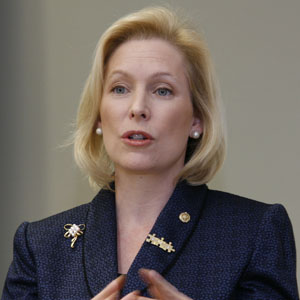
While negotiations continue on Capitol Hill to avert the looming fiscal cliff, a bipartisan group in Congress is pushing for a vote before year”™s end on a bill to allow credit unions to increase their lending to small businesses squeezed by tightened bank credit since the financial crisis of 2008.
The Small Business Lending Enhancement Act, as the bill”™s Senate version is titled, would enable credit unions to lend up to 27.5 percent of total assets to member businesses. Credit unions could raise their lending above the current cap of 12.25 percent of total assets in a graduated tier system overseen by the National Credit Union Administration.
The change, which requires no additional government spending, could increase business lending by as much as $1 billion among the 422 credit unions in New York state, according to the Credit Union National Association (CUNA). The association calculated that increased amount of lending would spur the creation of up to 11,000 jobs in the state.
The legislation, which also has bipartisan sponsorship in the House of Representatives, would free up an additional $233.9 million for potential lending at 39 credit unions in the seven-county Hudson Valley region. The 21 credit unions operating in Westchester County could have an additional $68.9 million available for lending to small businesses, according to CUNA.
Nationwide, the bill would free up about $13 billion in capital and create 140,000 new jobs, the association reported. That additional potential lending represents about 2 percent of the approximately $590 billion in outstanding small business loans reported by the U.S. Small Business Administration.
Calling it “commonsense legislation,” New York”™s junior senator in Washington, Kirsten Gillibrand, in a press release said she is pushing for a vote on the bill this month. “This simple rule change wouldn”™t cost a dime from the federal government while giving small businesses more of the capital they need to get off the ground, grow and get thousands of Americans back to work,” she said.
The bill is supported by groups that include Small Business Majority, a national small business advocacy group, but is strongly opposed by the Independent Community Bankers of Americas (ICBA), a nearly 5,000-member advocacy group for the community banking industry.
The ICBA on its website claims the legislation “would create unnecessary risk in the financial system, exacerbate the competitive advantage credit unions enjoy over community banks and widen budget deficits at the federal, state and local levels.” The group questions whether increasing the credit union lending cap will stimulate economic growth and jobs creation as its supporters claim.
An ICBA analyst suggested that increasing the lending cap was not needed, as only 1.6 percent of credit unions are at or over the current 12.5 percent cap and more than 70 percent of credit unions have no member business loans at all.
The ICBA argues that additional business lending by tax-exempt credit unions would result in a net loss of federal revenue from taxes paid by commercial banks that otherwise would have made those loans. The lobbying group cited a recent Congressional Budget Office report that estimated the lost revenue at nearly $16 billion.
Credit unions with higher ratios of member business loans to total assets account for a disproportionate share of credit union failures, according to the ICBA. Raising the lending cap could result in “a marked increase” in credit union failure and leave the federal government “on the hook for potentially much larger costs in the future.”
Supporters of the bill at Small Business Majority said there is no evidence that credit union loans would significantly displace bank lending to small businesses if the cap is raised. The statutory change, though, would result in more competition for banks.
The legislation “would give small businesses a major advantage as they seek capital,” according to the industry lobbying group. Small businesses need that advantage, advocates said, as six in 10 owners said they had difficulty obtaining loans to grow their businesses in a January opinion survey conducted by Small Business Majority and two other national small business groups.
















